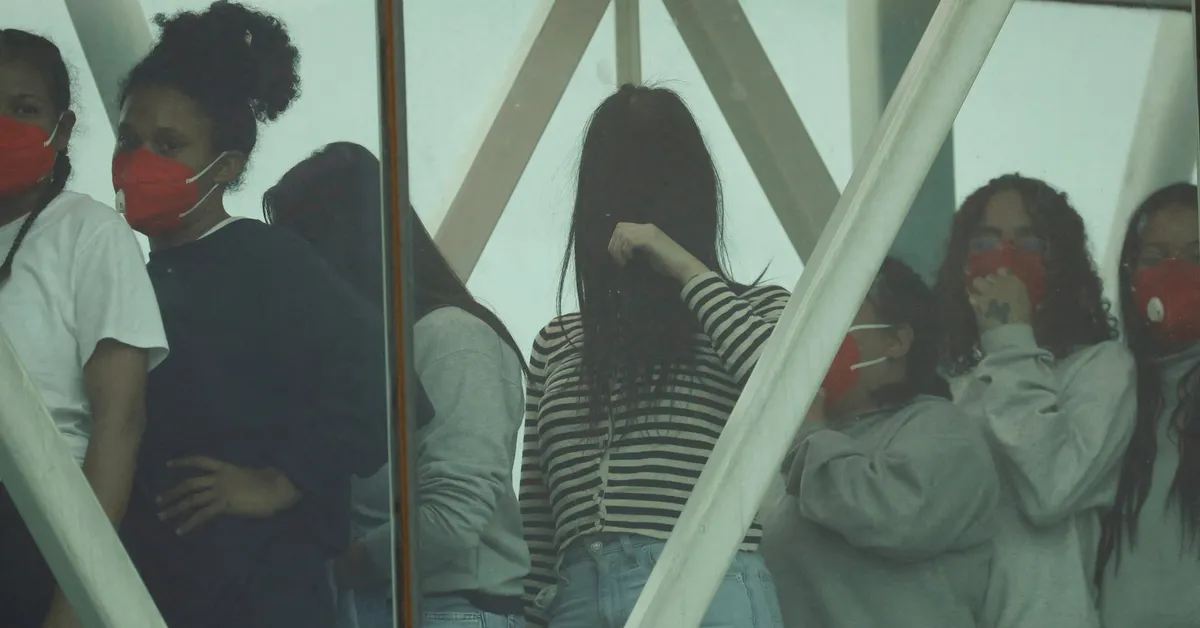
On May 19, 2023, the U.S. Supreme Court made a significant ruling allowing the Trump administration to terminate the Temporary Protected Status (TPS) that had been granted to hundreds of thousands of Venezuelans residing in the United States. This decision comes as part of the Republican administration's broader strategy to intensify deportations and enforce a hardline stance on immigration.
The TPS program is a humanitarian designation provided under U.S. law for countries facing severe crises, such as war, natural disasters, or other catastrophic events. This status affords recipients protection from deportation and the ability to apply for work permits while living in the U.S. The program's designation can be renewed by the U.S. Secretary of Homeland Security.
The Supreme Court's order was brief and unsigned, which is customary when justices act on emergency requests. However, the court did not preclude further legal challenges from migrants if the administration attempts to revoke work permits or other TPS-related documents that are currently set to expire in October 2026, the end of the TPS period extended by President Biden.
According to the Department of Homeland Security, approximately 348,202 Venezuelans were registered under Biden's TPS designation in 2023. Liberal Justice Ketanji Brown Jackson notably dissented from the ruling, highlighting the ongoing debate regarding immigrants' rights and protections.
The decision arose from a legal challenge involving several TPS recipients and the National TPS Alliance, who argue that Venezuela remains an unsafe country. Following the ruling, Trump, who resumed the presidency in January, has promised to increase the number of deportations for individuals living in the U.S. illegally. His administration's approach includes rescinding specific legal protections for certain migrant groups.
The Biden administration had previously designated Venezuela for TPS twice, first in 2021 and then again in 2023. Just days before Trump took office, Biden's administration announced an extension of TPS to October 2026. However, Kristi Noem, a Trump appointee and Homeland Security Secretary, moved to revoke this extension for a subset of Venezuelans benefiting from the TPS designation.
In a ruling against the administration, U.S. District Judge Edward Chen, based in San Francisco, concluded that Noem's actions violated federal law governing agency conduct. He pointed out that the revocation of TPS seemed based on unfounded stereotypes, implying that Venezuelan migrants were criminals. Judge Chen emphasized that Venezuelan TPS holders are often more educated than American citizens and less likely to commit crimes compared to the general U.S. population.
After the Supreme Court's ruling, many Venezuelan migrants with TPS expressed their fears and concerns. Maria Rodriguez, a TPS holder residing in Orlando, stated, "We're defenseless, vulnerable." Rodriguez, who has lived in the U.S. for five years with her family, emphasized the dire conditions that forced them to leave Venezuela, saying, "We left Venezuela because we couldn't make ends meet there."
Similarly, Reinaldo Alvarado, another TPS holder, expressed uncertainty about his future. "In theory, TPS protects me from deportation. But they are taking everyone here, so my medium-term plan is to go to Spain," he said, reflecting the distress faced by many in the TPS community.
Currently, the State Department warns against travel to Venezuela due to a range of risks, including wrongful detentions, terrorism, kidnapping, and civil unrest. In April, the Trump administration also ended TPS for thousands of Afghans and Cameroonians in the U.S., though these actions are separate from the TPS case currently under review.
In a related matter, the Supreme Court has maintained a block on Trump's deportations of Venezuelan migrants under the 1798 Alien Enemies Act, which has historically been applied only during wartime. The court criticized the administration for attempting to deport individuals without proper legal processes.
This ongoing situation raises significant questions about the future of immigration policy in the United States and the protections afforded to vulnerable migrant populations, particularly those from crisis-stricken nations like Venezuela.